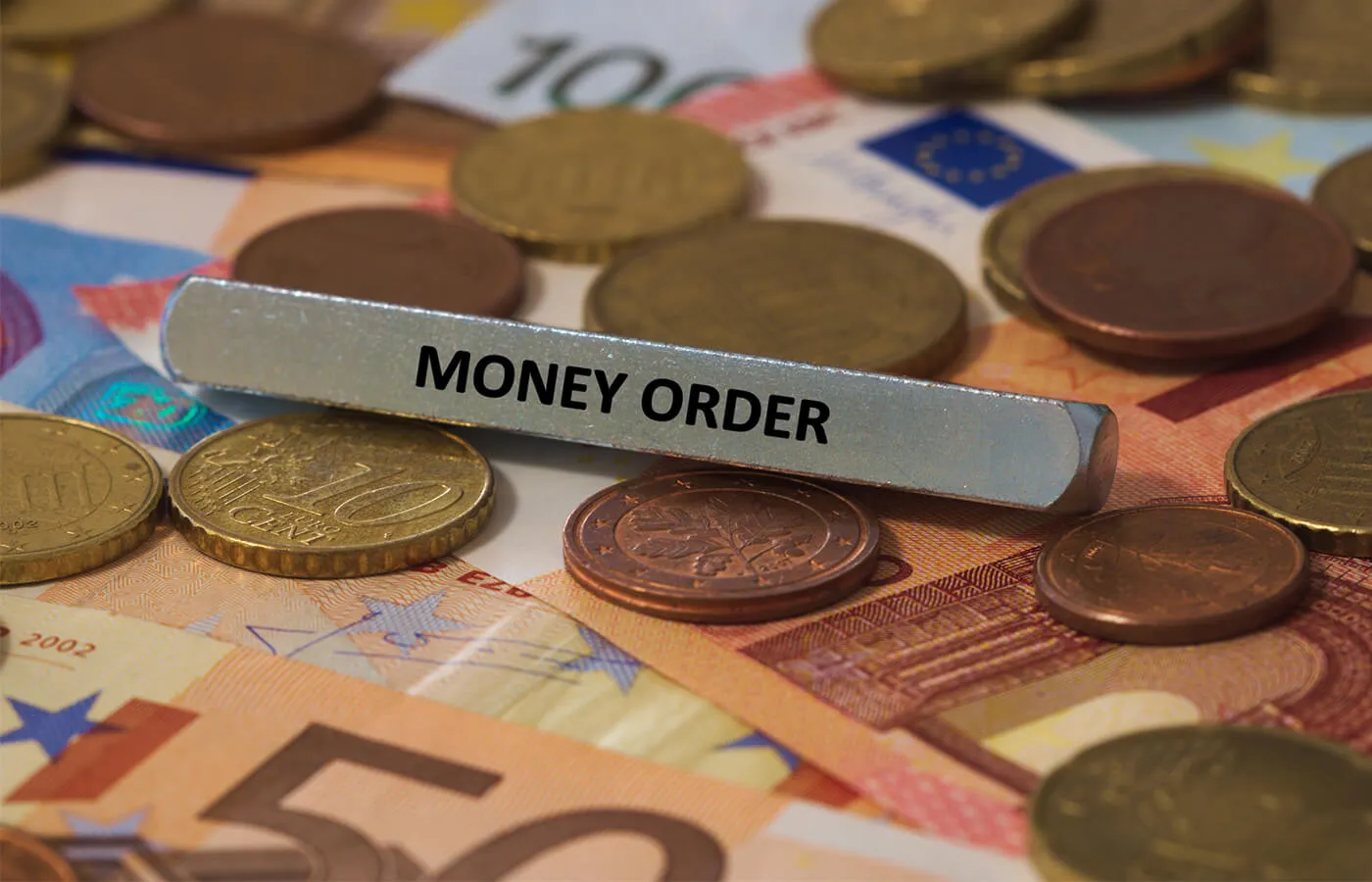Can You Buy a Money Order With a Credit Card?
Quick Answer
You typically can’t buy a money order with a credit card. Instead, you’ll need to use cash or a debit card that takes funds directly from your bank account.

A money order can be a useful form of payment in some situations. But before you head out to buy a money order, it's important to know how you'll pay for it. You generally can't buy a money order with a credit card; you'll need to use cash or a debit card.
What Is a Money Order?
A money order is a way to make secure payments with a paper check that isn't tied to your checking account. People may use money orders if they don't have a checking account, want to send money overseas or fear a check sent by mail will be lost or stolen. You might also use a money order when you don't feel comfortable sharing your checking account or payment app data with an individual. Unlike a personal check, a money order includes no information that can lead to identity theft.
Because you must pay for a money order upfront, the recipient knows payment is guaranteed, unlike a personal check that could bounce. Cashing a money order typically requires presenting identification in person, so even if the money order is lost or stolen, no one else can cash it.
Where Can You Buy a Money Order?
You can buy money orders at various locations.
- U.S. post office branches, including military post offices, sell money orders.
- Banks and credit unions typically sell money orders to customers.
- Retail locations such as Walmart stores, supermarkets, convenience stores and drugstores may sell money orders, generally through in-store MoneyGram and Western Union agents.
- Check-cashing stores, which cater to people without bank accounts, usually sell money orders.
Usually, money orders must be purchased in person. Before visiting a location to buy a money order, ask about:
- Any identification required to buy a money order
- Forms of payment accepted
- Limitations on amounts
- Fees, which generally range from less than $1 to $5, depending on the amount of the money order and where you buy it
Not all locations that sell money orders handle international money orders. If you need to send money internationally, check on this before visiting.
Can You Pay for a Money Order With a Credit Card?
Typically, you can only use cash or a debit card to buy a money order. In the past, Western Union and 7-Eleven accepted credit card payments for money orders, but that's no longer the case. You can't buy a money order with a personal check, either.
Don't have the cash on hand for a money order? You could get a credit card cash advance at your bank, credit union or ATM and use the cash to purchase a money order. However, because this can be a costly option, it's generally not a good idea.
Should You Buy a Money Order With a Credit Card?
There are several reasons to avoid using a credit card cash advance to buy a money order.
- The annual percentage rate (APR) for a credit card cash advance is generally higher than the APR for a purchase—often much higher.
- There's typically a fee for a cash advance, either a flat rate or a percentage. It's usually $10 or 5% of the amount of the advance, whichever is higher, but some credit card issuers charge more.
- A cash advance could negatively impact your credit score if it increases your credit utilization ratio. Using more than 30% of your available credit can do extra damage to scores.
- Credit card purchases have a grace period before interest starts to accrue. However, interest on cash advances usually begins accruing immediately.
- If you already have a balance on your credit card, some card issuers put future payments toward your purchase balance before putting them toward your cash advance balance. Because cash advance balances incur more interest, this can make it tougher to pay off your balance.
You can find the APR, fees and other cash advance terms in your credit card agreement or by contacting your credit card issuer.
The Bottom Line
Money orders offer a way to make certain purchases or transfer funds to a business or individual. However, there are plenty of less cumbersome options such as paying with a check; using a payment app such as Zelle, PayPal or Venmo; or using a wire transfer or online bank transfer.
Purchasing a money order with cash won't affect your credit, but using a credit card to buy a money order could lower your credit score if it pushes your credit utilization too high. Your credit score might also suffer if paying off a high credit card balance makes it difficult to pay your other bills. By regularly checking your credit report and setting up free credit monitoring, you can spot potential risks to your credit and take steps to resolve them.
Don’t apply blindly
Apply for credit cards confidently with personalized offers based on your credit profile. Get started with your FICO® Score for free.
See your offersAbout the author
Karen Axelton is Experian’s in-house senior personal finance writer. She has over 20 years of experience as a journalist and has written or ghostwritten content for a variety of financial services companies.
Read more from Karen